Endless possibilities
Recycled PET bottles are made back into bottles – that is called bottle-to-bottle recycling – but not only into bottles! They are partly made into small flakes. The colourful flakes are then used as a stuffing for soft toys or processed into various types of foil. The white flakes are melted and processed into textile fibres. This PET fibre is used for example, in the interior lining of jackets, T-shirts or the popular fleece sweaters. 5 PET bottles provide enough textile fibre to produce an extra- large T-shirt!
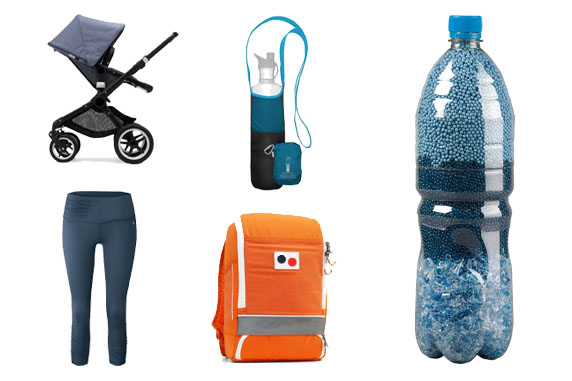
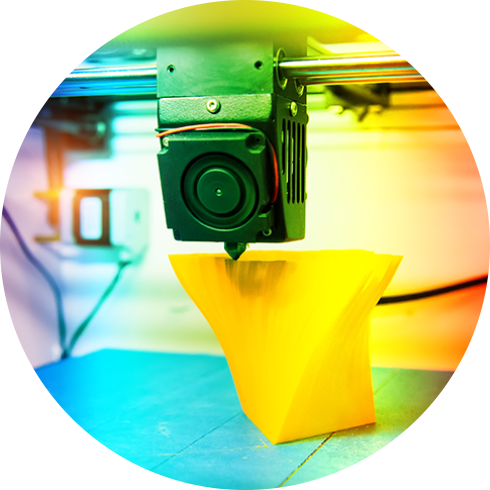
Turning old into new: how prams, functional jackets and bricks can be made from used PET bottles
At the 2018 MET Gala, British actress Emma Watson showed that the ideal outfit can be tailored from more than just chiffon, satin or tulle. She wore a black and white dress by Calvin Klein whose fabric was made from 100 per cent recycled PET bottles. But it is not only designers who use PET as a valuable raw material. Recycled PET, also known as rPET, is used in various areas today. This is how prams, backpacks, bricks, functional jackets and material for 3D printers are created.
The first PET bottle was patented by the chemist Nathaniel Wyeth in 1973 and the first PET bottle was recycled only 4 years later.
At the time, the introduction of the first recyclable PET bottles created quite a stir all round the world. At the end of the 1980s, the first PET bottle for carbonated soft drinks was launched. Nowadays, they are regarded as an indispensable part of our supermarket shop and fridge content. PET bottles are not only used to sell soft drinks and water, they are used as containers for milk and milk products as well as fruit juices and alcoholic drinks.
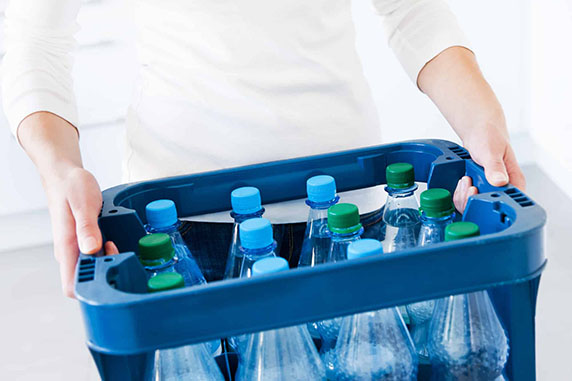
PET = Polyethylene terephthalate is discovered an patented for the first time in England.
The first PET bottle ist presented bay the US chemist Nathaniel Wyeth. Machine manufactures began to construct the first machines for the production of plastic bottles.
With the introduction of a 2-litre bottle in the USA by Coca-Cola, the PET bottle began its worldwide distribution.
In Germany, the 1,5 litre, unbreakable returnable bottle from Coca-Cola is launched on the market.
Establishment of Forum PET.
Introduction of mandatory deposit on disposable drinks packaging.
When you hear PET, the first thing that comes to mind is drinks bottles. And this association is no coincidence – around 66 per cent of all products produced from PET in Europe are beverage bottles.¹ Yet PET can do a lot more: the valuable raw material is also very important for industry. A good example is strapping for securing loads. According to the GVM² Market Volume database, PET strapping is increasingly displacing alternative forms such as traditional cords. Approximately 80,000 tonnes of PET is used in this sector in Germany alone.³
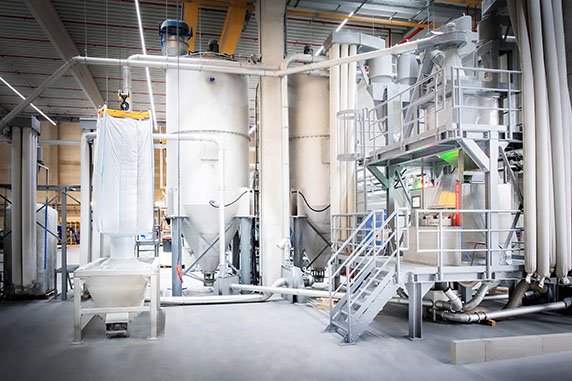
Plastic pallets are also very popular in industry. High density polyethylene (HDPE) or polypropylene (PP) are often used, but PET is also used in some areas. The transport and logistics industry in particular relies on plastics in the palletising field. The pallets are mostly used in production in conveyor systems. Thanks to their low weight and high durability, they have a better ecological footprint compared to alternative materials such as wood. What’s more, pallets made of plastic are easier to clean than products made of wood.⁴
Whether strapping or pallets – PET is an indispensable material for industry. PET will continue to play a major role, especially in the areas of transport and logistics.
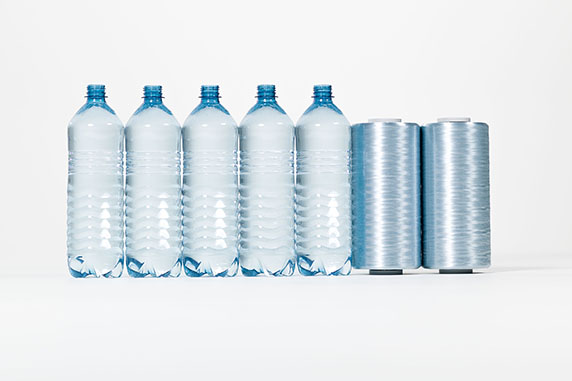
¹ PET Market in Europe: State of Play. Production, Collection and Recycling Data. Eunomia 2020.
² GVM = Gesellschaft für Verpackungsmarktforschung mbH
³ Benedikt Kauertz and Andreas Detzel (Ifeu Institute for Energy and Environmental Research Heidelberg): PET use and recycling in Germany. Use of PET and PET recyclates from packaging in Germany. A short study commissioned by NABU – Naturschutzbund Deutschland e.V. 2017
⁴ https://www.materialfluss.de/behalter-boxen-paletten-lager-und-kommissioniertechnik/pro-und-contra-kunststoffpalette-versus-holzpalette.htm